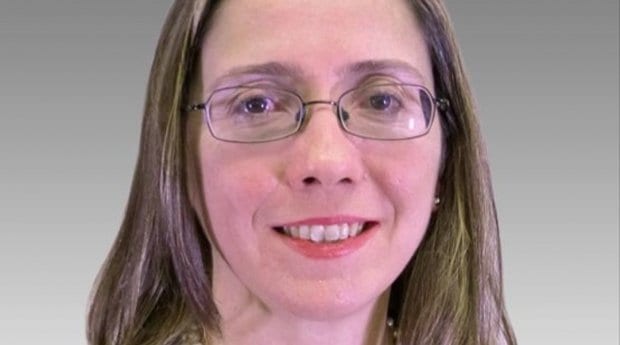This school year, the Richmond School Board will answer one of the most ideologically divisive questions facing Canada’s schools: Is it about the bullying, or is it about the homophobia?
Richmond is one of the last school districts in the Lower Mainland, and one of a minority in BC, without an explicit policy to combat homophobia. Sandra Nixon, a trustee for the Richmond School Board, wants to change that. She is pushing the district to write its own anti-homophobia policy, and has convinced the board to start a working group to look into the issue.
“We’ve tended to say we just need one policy; we don’t need to single out a single group,” she says. “But I do believe that if a particular group is experiencing a particular kind of oppression that is systemic, we have a responsibility to name the issue.”
To some, you can’t even talk about bullying in schools, let alone fix it, without discussing homophobia. A landmark 2011 study by advocacy group Egale Canada found that sexual minority students were twice as likely, and trans students three times as likely, to be verbally harassed in school for their gender expression. More than a third of trans students and a fifth of LGBT students said they were physically assaulted. While many kids are bullied for many reasons, advocates of the “it’s about the homophobia” approach say that homophobia is its own problem.
“In our view, using a neutral anti-harassment policy sort of misses the point,” says Kendra Milne, a lawyer with legal advocacy group West Coast LEAF. “Having targeted policies allows the students and the teachers and the administrators to not just understand that bad actions are happening, but why they are happening and the systemic issues behind them.”
West Coast LEAF has called for provincial leadership to mandate all schools write an explicit anti-homophobia policy. No such leadership has been forthcoming in BC. School districts have implemented their own policies haphazardly, but a third of BC’s districts still don’t have one. In the Lower Mainland, Richmond and Coquitlam are the last two hold-outs.
The BC Ministry of Education released a 2003 report on bullying that mostly ignored homophobia in favour of generic recommendations about “safety” and “positive school culture.” Four years later, the BC government limply ordered schools to align policies with the BC Human Rights Code, but not to specifically address homophobia. Premier Christy Clark has positioned herself as a passionate anti-bullying advocate, repeating phrases like “positive school culture” while rarely discussing homophobia.
Cheryl Chang’s crusade against the Vancouver School Board’s 2014 trans additions to its anti-homophobia policy exemplifies the generic anti-bullying position. The former Lord Byng Parent Advisory Council chair led a group of concerned parents under the motto “protecting all children in school” and called for an “end to all bullying and harassment.”
The problem with calling for an end to “all” bullying, says anti-homophobia advocate Jeremy Dias, is that it pretends that all bullying is the same. Calling for an end to all bullying is, at its core, similar to saying that “all lives matter” when activists want to talk about disproportionate police violence against African Americans, or that “all sexual assault is bad” in response to violence against women.
“It’s a matter of systems of oppression,” he says. “Bullying is not homophobic violence. I think that answer to the question shows the desperate need for a response to the problem.”
Dias is very familiar with this divide. He runs Day of Pink, an anti-bullying event almost identical to Pink Shirt Day in every way except one. Day of Pink explicitly discusses homophobia and transphobia; Pink Shirt Day does not. Even though Pink Shirt Day was inspired by an incident of homophobic bullying, its website glaringly omits the fact. (Pink Shirt Day did not respond to Daily Xtra’s attempts to contact them.)
The resistance to talking about homophobia, says Nixon, is exactly why school districts need to talk about it.
“If any district needs a policy it’s Richmond,” she says. “The high percentage of immigrant groups or religiously conservative groups means it’s even more critical that we allow children to be open at school . . . I won’t win any popularity contests saying this. It’s our responsibility to represent the community, but these values are from the Canadian charter. That is really the core value we need to hold up.”
While Richmond School Board’s superintendent, Monica Pamer, tells Daily Xtra she is open to change, she won’t take a position on an explicit anti-homophobia policy.
“I’m not sure where this consultation process will take the board,” she says. “We want to hear more about what’s going on. I think there are some rumours that we haven’t done anything, but this is where we’re going.”
Eric Yung, the one other Richmond trustee (out of a total seven trustees on the board) who responded to Daily Xtra’s request for comment, was similarly neutral. “I personally believe that we should have a zero-tolerance policy on any and all forms of discrimination — which is what Richmond currently has,” he says in an email. “If we need to clarify or strengthen its protections against any forms of discrimination — well, that’s what the working group will hopefully inform us about.”
The best thing parents, students and their allies can do, says Nixon, is write to the board. The more people they hear from, she says, the easier it will be for the district to finally talk about homophobia out loud.


 Why you can trust Xtra
Why you can trust Xtra


